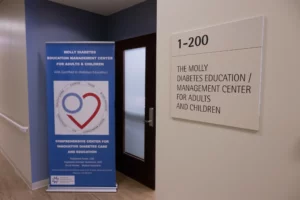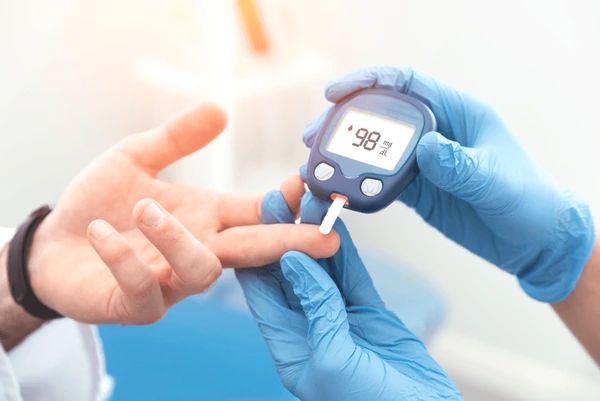Diabetes Alert Day, the fourth Tuesday in March, is a one-day “wake-up call” that focuses on the seriousness of diabetes and the importance of understanding your risk.
More than 38 million Americans have diabetes and 20% — 8 million people — don’t even know it. The new Diabetes Risk Test asks users to answer simple questions about weight, age, family history and other potential risks for prediabetes or type 2 diabetes.
The American Diabetes Association has preventative tips and encourages those at high risk to talk with their health care provider.
Type 2 diabetes tends to develop over a long period of time, which is why it can be difficult for those with the condition to spot their symptoms at first. The symptoms can often be minimal and therefore hard to notice.
Some symptoms of type 2 diabetes include:
- Increased thirst and hunger
- Frequent urination
- Fatigue
- Blurred Vision
- Numbness or tingling in hands or feet.
Type 2 diabetes, unlike type 1, develops over a longer period of time and could be attributed to certain lifestyle choices. Being obese or inactive are great risk factors for developing diabetes, however, there are other ways to develop the condition that are out of your control. Genetics, ethnicity and age can all play a role in developing type 2 diabetes, which is why it is so important to be aware of possible symptoms.
“The sooner you know your risk, the sooner you can take steps to prevent or even learn to manage the disease,” says Dr. Colette M. Knight, chair of the Inserra Family Diabetes Institute and director of the Hackensack University Medical Center’s endocrinology division. “It is possible to prevent Type 2 diabetes and even reverse it.”

Hackensack University Medical Center’s MOLLY Diabetes Education/Management Center for Adults and Children, patients are able to receive the most up-to-date diabetes treatment. They are taught the most effective methods of diabetes management, which includes the skills and tools that are needed to live a healthy, fulfilling life.
“You don’t have to cut everything that you love out of your diet, you just have to learn the portion size of what you love to eat and drink and where to fit in to your meal plan,” explains Toni Isabella, Manager of the Center, who says it is also important for people to learn how stress and sleep can also impact diabetes. “Working with the specialists at the MOLLY Center, the knowledge and advice they provide, can actually help put diabetes into remission.”
Choosing healthier foods to eat, cutting down on snacks and incorporating exercise in your daily routine can all be effective ways to subside the symptoms of the condition. While type 2 diabetes does not have a cure, it is possible to reverse it through developing a better lifestyle and adopting a healthy diet.
By clicking here, you can identify your risk of diabetes by taking a 60-second assessment.
If you or a loved one has prediabetes or is having difficulties dealing with type 1 diabetes, type 2 diabetes, prediabetes or gestational diabetes, you can book an appointment at the MOLLY Diabetes Center by clicking here.














